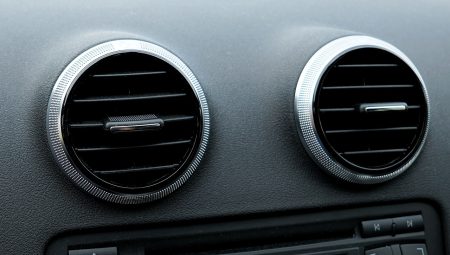When it comes to your vehicle, a faulty engine mount can be more than just an annoyance; it can lead to serious complications, including oil leaks. But how does this happen? Engine mounts are designed to keep your engine stable and absorb vibrations, much like a cushion for a heavy object. When these mounts fail, the engine can shift and move excessively, putting pressure on oil seals and gaskets. This movement can cause them to crack or wear out, leading to leaks. So, if you notice oil spots under your car, it might not just be a random issue—it could be a sign of a failing engine mount!
It’s crucial to pay attention to your vehicle’s performance. Are you experiencing unusual vibrations or noises? These could be early warning signs of a bad engine mount. Ignoring these symptoms might not only worsen the engine mount issue but could also lead to costly repairs down the line. Think of it like ignoring a small crack in a dam; if left unattended, it could turn into a catastrophic failure. Therefore, keeping an eye on your engine mounts can save you from a lot of headaches—and a lot of oil leaks!
Understanding Engine Mounts
Engine mounts are vital components in any vehicle, acting as the unsung heroes that keep your engine stable and secure. These mounts are typically made from a combination of rubber and metal, designed to absorb vibrations and shocks while supporting the weight of the engine. Imagine them as the cushions of your car’s heart, ensuring everything runs smoothly. Without them, the engine could shake violently, leading to a host of problems.
There are several types of engine mounts, including:
- Hydraulic mounts – filled with fluid to absorb vibrations.
- Solid mounts – provide maximum stability but less vibration absorption.
- Polyurethane mounts – offer a balance between durability and comfort.
Each type serves a purpose, but their primary job is to keep the engine aligned and reduce wear on other components. If these mounts fail, the consequences can ripple through your vehicle, affecting performance and potentially leading to costly repairs. So, understanding engine mounts isn’t just about knowing what they are; it’s about appreciating their role in your vehicle’s overall health.
Symptoms of a Faulty Engine Mount
Recognizing the can save you from costly repairs down the road. Have you ever felt excessive vibration while driving? This could be your engine mount waving a red flag. When these mounts wear out, they lose their ability to absorb vibrations, leading to a bumpy ride that feels like you’re driving a washing machine on spin cycle!
Another telltale sign is unusual engine movement. If you notice your engine shifting more than it should during acceleration or deceleration, it’s time to take a closer look. This movement can also cause misalignment, which can lead to oil leaks due to stress on seals and gaskets.
Additionally, keep an ear out for clunking or banging noises when you shift gears. This noise often indicates that the engine isn’t securely mounted, and it’s a sign that your engine mounts may be failing. If you experience any of these symptoms, don’t ignore them! Addressing a faulty engine mount promptly can prevent further damage to your vehicle.
Connection Between Engine Mounts and Oil Leaks
Have you ever wondered how a small component like an engine mount can cause a big mess, like an oil leak? It’s all about the way these mounts work. Engine mounts are designed to keep your engine stable and absorb vibrations. However, when they start to wear out, they can create a domino effect that leads to oil leaks. Imagine a shaky table; if one leg is off, everything on it could spill over.
When an engine mount fails, it can allow the engine to shift more than it should. This movement can put extra stress on oil seals and gaskets, which are crucial for preventing leaks. Over time, this stress can cause these seals to crack or break, leading to oil seeping out. Here’s how it typically happens:
- Excessive Vibration: A faulty mount increases engine vibrations, weakening seals.
- Misalignment: Engine movement can misalign components, causing leaks.
- Pressure Build-Up: Improper positioning can lead to pressure that forces oil out.
In summary, a faulty engine mount doesn’t just compromise your ride’s comfort; it can also lead to costly oil leaks. So, if you notice any signs of wear, it’s wise to address it before it turns into a bigger problem!
Frequently Asked Questions
- Can a faulty engine mount really cause oil leaks?
Absolutely! When engine mounts fail, they can allow excessive engine movement, which may damage oil seals and gaskets, leading to leaks. Think of it like a trampoline—if the springs are worn, the bounce can cause things to go out of place!
- What are the signs of a faulty engine mount?
Look out for unusual vibrations, clunking noises, or misalignment of the engine. If your car feels like it’s dancing on the road, it might be time to check those mounts!
- How can I prevent engine mount issues?
Regular maintenance is key! Keep an eye on your engine’s performance and address any unusual sounds or vibrations promptly. It’s like giving your car a health check-up!





